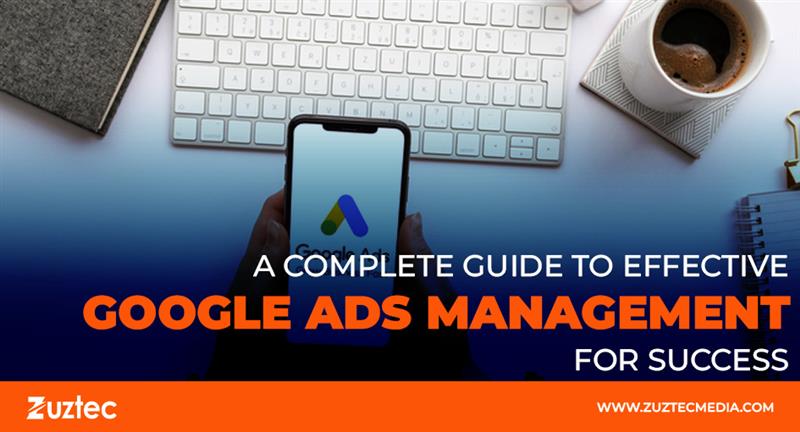
A Complete Guide to Effective Google Ads Management for Success
Google Ads is one of the most powerful tools available for businesses looking to drive traffic, boost conversions, and increase brand visibility. With millions of searches happening every second, Google Ads offers direct access to potential customers at the exact moment they’re searching for what you offer. But running ads on Google isn’t as simple as setting a budget and choosing some keywords. Successful Google Ads management requires planning, testing, optimization, and constant attention to detail.
The platform includes multiple campaign types, detailed targeting options, bidding strategies, and performance metrics that can quickly get complex. Without a clear strategy and understanding of how the system works, it’s easy to waste budget on underperforming ads or reach the wrong audience altogether.
That’s why learning how to manage your Google Ads effectively is essential. Whether you’re running the ads yourself or hiring an agency, understanding the basics of ad structure, targeting, bidding, and performance tracking can help you get better results and a higher return on investment. In this article, we’ll walk through the key steps of managing Google Ads successfully—from setting goals and doing keyword research to writing compelling ads and optimizing for performance.
If done right, Google Ads can be one of the most cost-effective marketing channels available. Let’s explore how to make the most of it with a structured, results-driven approach to ad management.
Understanding the structure of Google Ads Management
Before launching your campaign, it’s important to understand how Google Ads is organized. There are three main levels: account, campaign, and ad group. At the top is your account, which contains all billing and login information. Every campaign in your account aims to reach a particular audience or objective. Ad groups are found within each campaign, where sets of ads and keywords are arranged according to a particular theme.
This structure helps keep your ads relevant and targeted. By organizing your ad groups based on specific products or services, you can write more effective ads and choose keywords that match search intent closely.
Optimizing landing pages for conversions
A great ad gets users to click, but the landing page must convince them to take action. Make sure your page is relevant to the ad, loads quickly, and works well on mobile devices.
Include one clear call to action, and remove unnecessary distractions. A strong landing page boosts Quality Score, which can lower your cost-per-click and improve your ad rank.
A/B testing and ongoing optimization
Once your campaigns are running, testing and refining should never stop. Try A/B testing different ad headlines, descriptions, landing pages, and even keyword strategies. Look for trends and patterns in the data to guide your decisions.
Pause underperforming ads or keywords, increase bids for top performers, and regularly update your negative keyword list. Optimization is an ongoing process that helps you spend your budget wisely.
Budgeting and bid strategy for Google Ads Management
Choosing the right budget and bidding strategy can make a big difference. Start with a daily budget you’re comfortable with and adjust based on results. For bidding, you can choose manual CPC if you want control or use automated strategies like Maximize Conversions or Target CPA if you prefer AI assistance.
As your campaign matures and collects data, you’ll be able to fine-tune your bidding to match your goals and make better use of your spend.
When to consider professional help
Managing Google Ads well takes time and expertise. If you find yourself overwhelmed or not seeing good returns, it might be time to bring in professional help. Many agencies and freelancers specialize in Google Advertisements management and can offer guidance, strategy, and execution to improve your results.
Make sure you choose a partner with proven experience and transparent reporting practices so you always know where your budget is going.
However, Google Ads can be a powerful driver of business growth when managed the right way. From setting up campaigns and selecting keywords to writing ads and optimizing performance, every step plays a role in your overall success. A strong Google Ads management strategy helps you reach the right audience, control your spending, and generate measurable results.
Whether you’re new to paid advertising or looking to improve existing efforts, consistent testing, tracking, and learning are key. With the right approach, Google Ads can turn clicks into customers and become a valuable part of your digital marketing toolkit.

